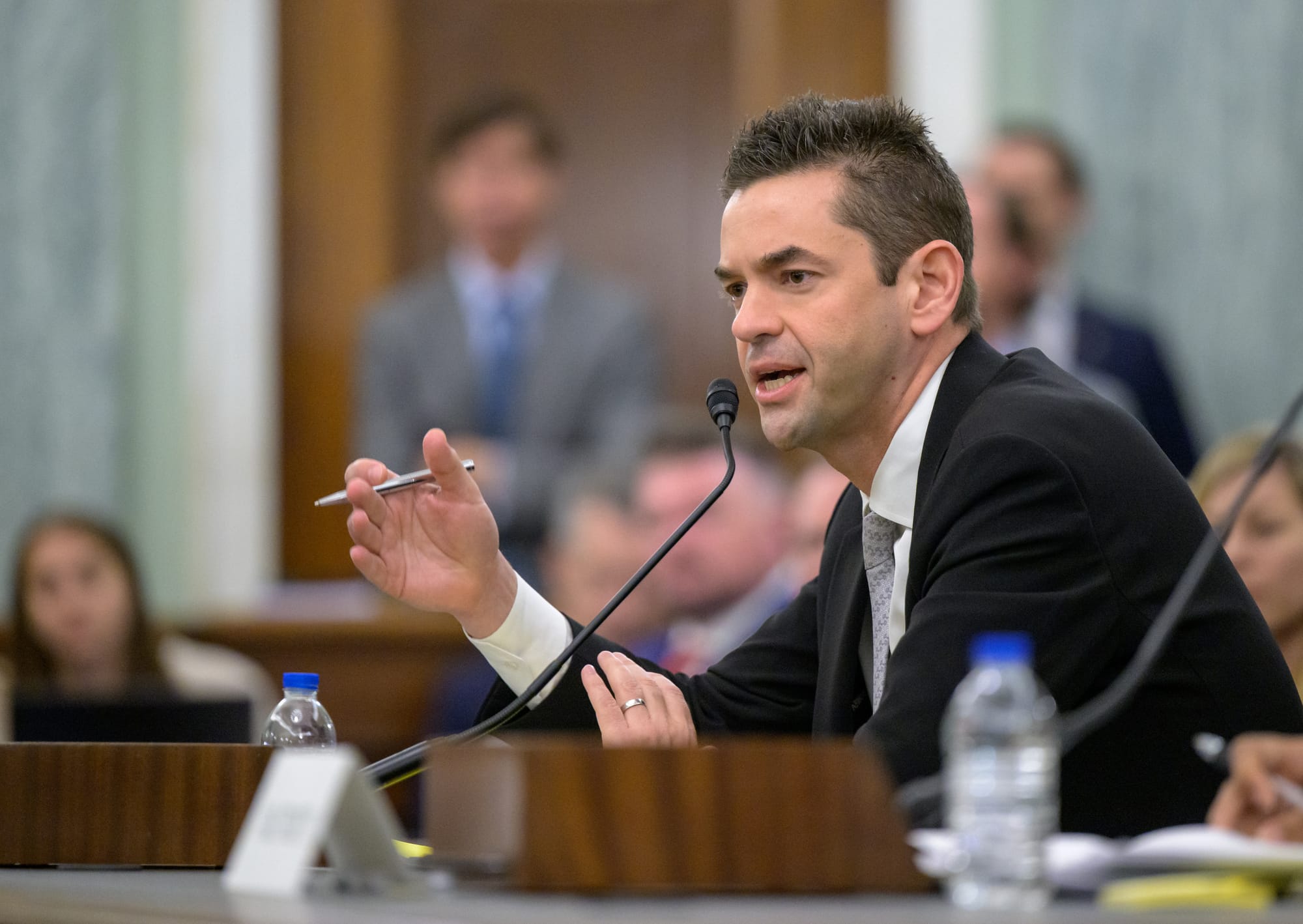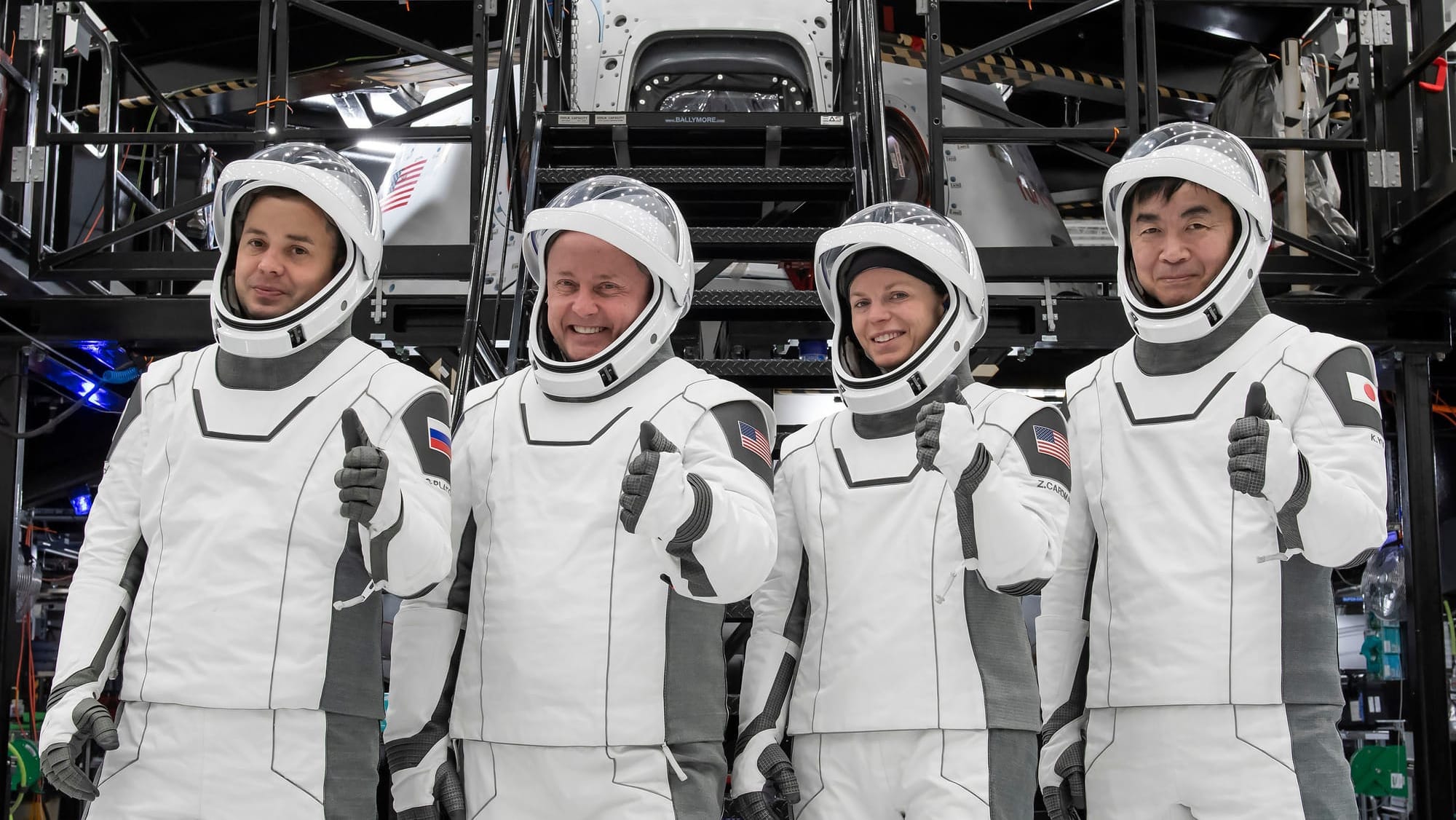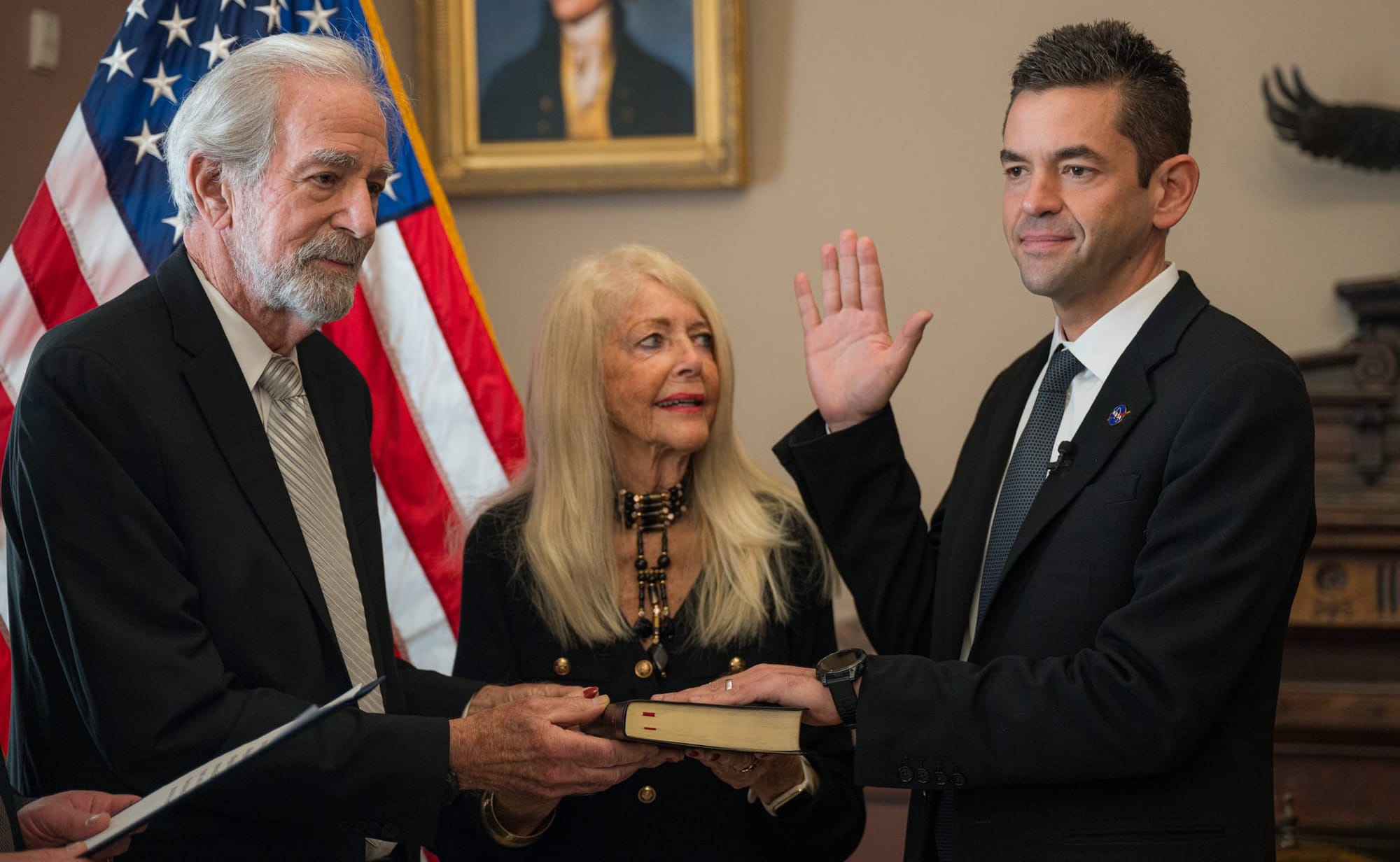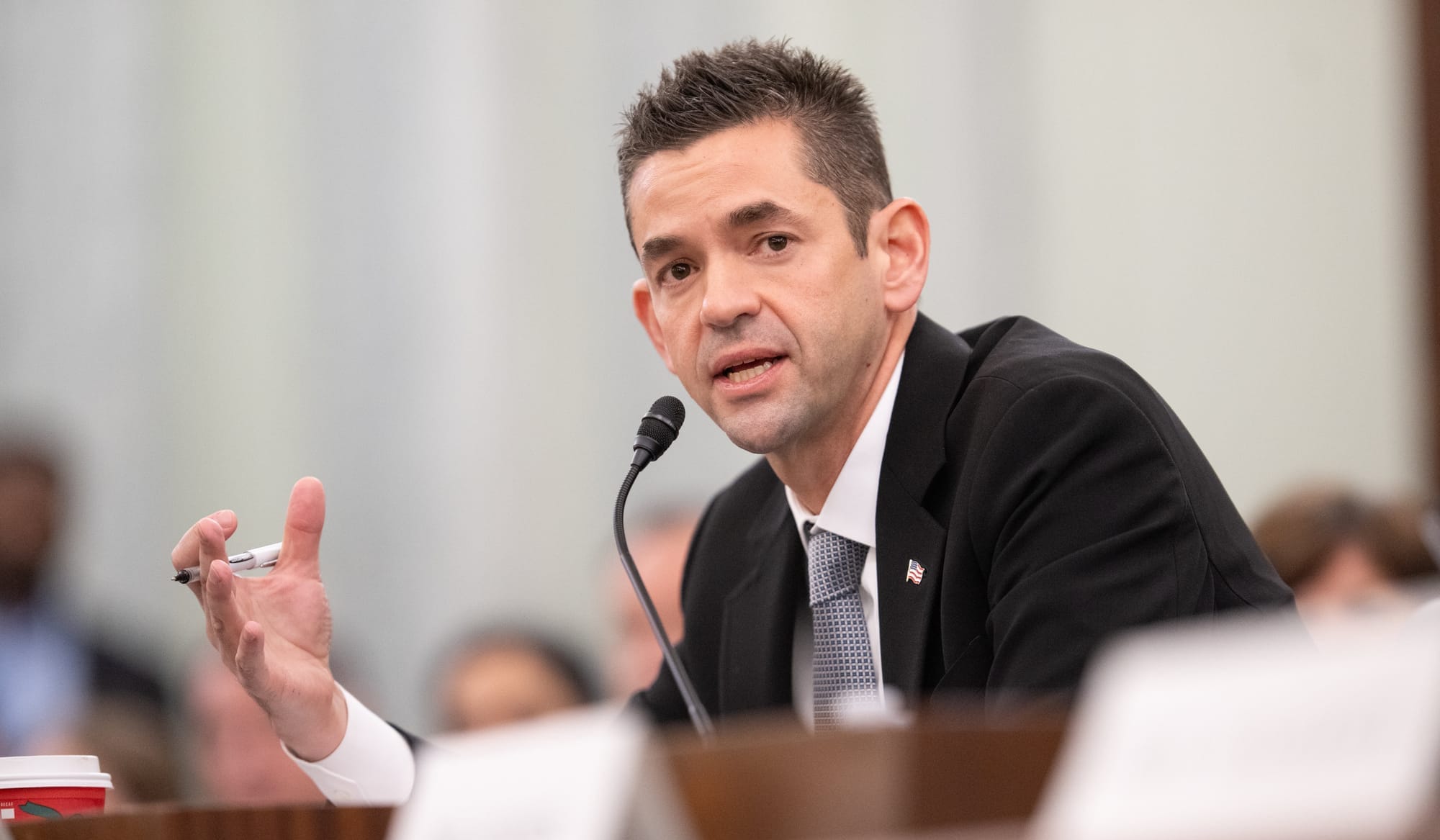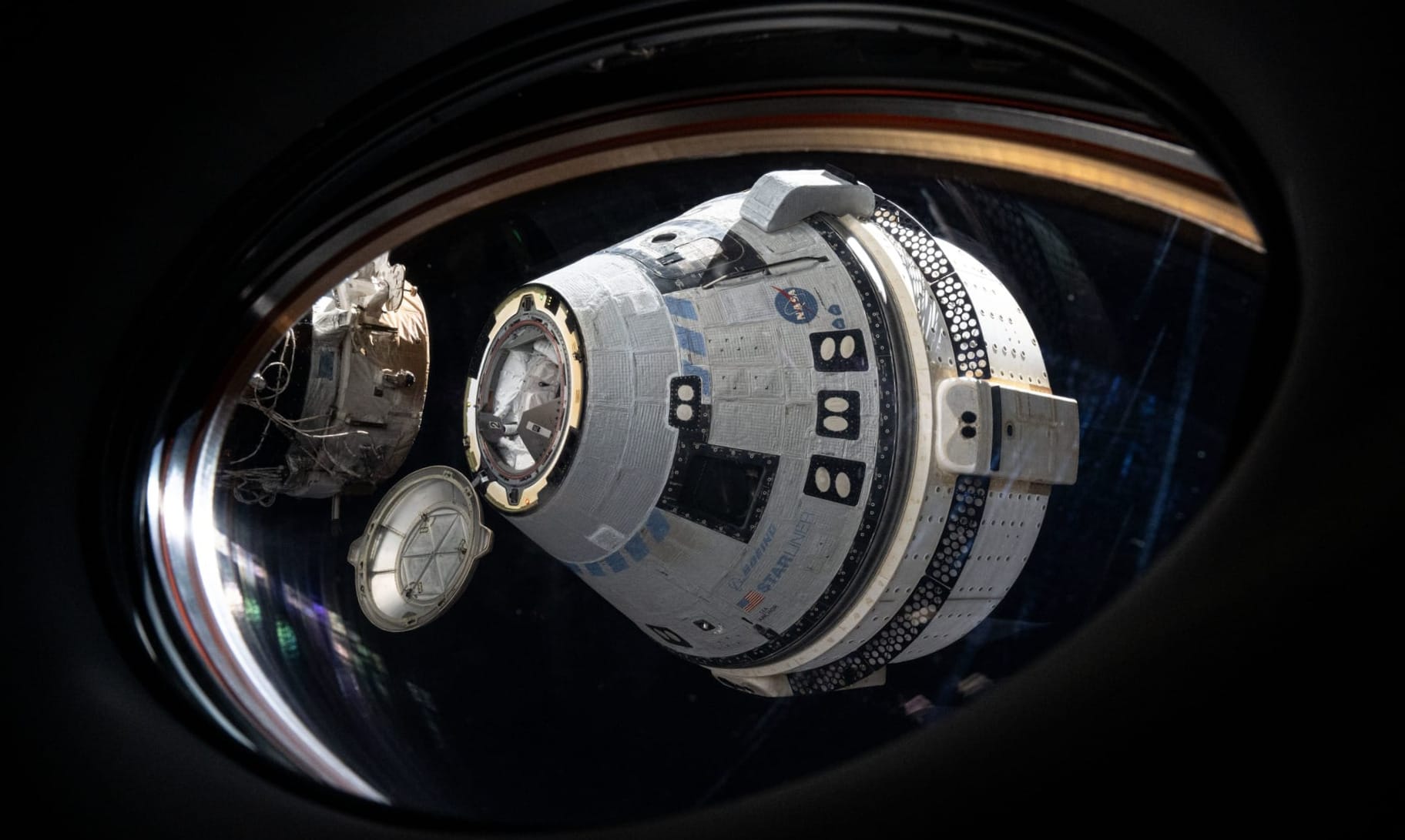Table of Contents
The U.S. Senate Committee on Commerce, Science, & Transportation held its nomination hearing for Jared Isaacman, a billionaire spacefarer of two flights, to become the fifteenth NASA Administrator. This comes five months after he was nominated by then-President-elect Donald Trump in December.
The hearing, attached below, lasted just shy of three hours with Chairman of the Committee Ted Cruz and Ranking Member Maria Cantwell leading. Additionally, Isaacman submitted a written testimony to the committee, which is attached in full at the end of this article.
The first question put forward by the committee, from Ted Cruz, was regarding competition with China and the possibility of the U.S. landing on the Moon second this decade. Isaacman responded that America cannot lose, must lead the way, and must not cede a so-called ultimate high ground in space.
Following that, Cruz highlighted that Isaacman had privately guaranteed that America would return to the Moon first while stating in his written testimony that Mars would be the priority. In response, Isaacman stated that at present the Artemis program costs too much, but that a Moon program should be determined on its economic, scientific, and national security benefits while a Mars program is underway alongside that.
.@SenTedCruz: "Do we have your commitment that you will not allow the scenario on the right on this poster to happen, that China will not beat us to the moon?
— CSPAN (@cspan) April 9, 2025
NASA Administrator nominee Jared Isaacman (@rookisaacman): "Senator, I only see the left-hand side of that poster." pic.twitter.com/kXsstsR07i
Isaacman being pushed on competition with China, via CSPAN on Twitter.
Regarding using the Moon as a stepping stone to Mars, which Cruz cites is written into U.S. law, Isaacman was pushed if he acknowledges the existence of the current plan. Isaacman acknowledged the plans written into U.S. law while claiming that NASA could run both crewed Moon and Mars programs.
Ranking Member Maria Cantwell's first question regarded the NASA budget, citing that the space agency generates over seventy billion United States Dollars in economic activity despite being constrained for its missions on the current funding levels, along with closing critical agency centers and infrastructure. Isaacman stated that NASA would keep the centers open to draw the U.S.'s best and brightest nationwide into the space program.
On firm-fixed-priced contracts, Isaacman claims that he is a fan of them, having run a defense company, for commercial industry while NASA should work on the near-impossible before turning it over to private industry once it's understood. Firm-fixed-price for private industry but not for NASA.
For a reduction in NASA's budget and workforce, via the 'Department of Government Efficiency' and Reduction-in-Force plans, Isaacman states that he wants to understand why reorganizations and reductions are underway to ensure the space agency can pursue critical goals. Later Isaacman added that he believes NASA can perform multiple 'flagship' missions under his leadership with a potentially reduced budget.
Cantwell then pushed on if the Artemis program with the Space Launch System (SLS) has support. Isaacman stated that he wants to see the Artmis II mission fly around the Moon and later see Americans on the Moon's surface. He later added that SLS is currently the fastest way to send Americans to the Moon, but not the best for long-term exploration.
Regarding a sustained presence on the Moon, Isaacman shared that America should get to the Moon to determine its economic, scientific, and national security benefits before committing to a sustained presence. On the Gateway lunar space station specifically, Isaacman made no commitment to the program beyond figuring out what was causing delays and cost overruns.
For a question framed as going to Mars instead of the Moon, due to its potential economic, scientific, and national security benefits, Isaacman responded that he hopes the U.S. has many low Earth orbit space stations, a Moon station, and a Mars station. He added that the U.S. needs to figure out why it needs to stay on the Moon.
On the future of low Earth orbit activity, Isaacman stated that the scientific potential of the International Space Station should be maximized before switching to commercially operated space stations. For the end of the space station, Isaacman added that he doesn't know of any reason to bring it out of orbit early.
Regarding links to Elon Musk for the future of NASA, Isaacman claims that he has not had contact with Musk since his nomination. On keeping Musk's influence out of NASA, Isaacman added he is loyal to the U.S. and the space agency. It was later highlighted by the committee that Isaacman's company Shift4 has partnered with SpaceX for payment processing, in a deal worth tens of millions of dollars.
When pushed if he met with Musk at Mar-a-Lago in late 2024, Isaacman stated he was at Mar-a-Lago to be interviewed by Donald Trump. The committee pushed Isaacman on the question three more times if he met Musk at Mar-a-Lago, his response all three times was that he was there to meet Trump. Isaacman denied, four times, that Musk was in the room for his interview with Trump.
.@SenMarkey: "It's not a difficult question. Was Elon Musk in the room when the president offered you the job?"
— CSPAN (@cspan) April 9, 2025
NASA Administrator nominee Jared Isaacman (@rookisaacman): "My meeting was with the president of the United States." pic.twitter.com/69vO45gwQd
Isaacman being pushed on if Musk was in the room for his interview, via CSPAN on Twitter.
In a question regarding competition with China, Russia, Iran, and the Democratic People's Republic of Korea (North Korea), Isaacman responded that competition works well from a commercial perspective to build up capabilities so long as the U.S. doesn't lose. To better compete, it was added that NASA should work with the Department of Defense and its various branches and agencies.
On managing space objects and debris, Isaacman believes that efforts to track objects in orbit should be unified, stating that the biggest challenge during his two missions was orbital debris. Additionally, Isaacman would like to see the U.S. lead the way in reducing untrackable objects in orbit.
For the future of NASA's Earth and climate science missions, Isaacman denied knowing of any intended cuts to Earth and climate science at the agency. Furthermore, Isaacman claimed he is passionate about both of those areas of science at NASA.
During the hearing, various senators and members of the committee highlighted that Isaacman's responses were indirect and avoided a direct answer. Several questions were answered quite evasively.
Isaacman's Written Testimony
As hosted on the U.S. Senate Committee on Commerce, Science, & Transportation website on April 9th, 2025.
Thank you Chairman Cruz, Ranking Member Cantwell, and distinguished members of the committee. I am honored and very grateful to be here before you today as President Donald Trump’s nominee to lead the National Aeronautics and Space Administration. I have lived the American dream and I owe this nation a great debt. I would happily serve President Trump in any capacity but to work alongside the people that have expanded the boundaries of exploration and brought humanity closer to the stars, would be the privilege of a lifetime
Before I begin, I would like to acknowledge my family—my parents, Sandy & Don Isaacman, my wife Monica and my two wonderful daughters, Mila and Liv.
I do recognize, I am a newcomer so I thought I would share a bit of my story, along with my understanding of the challenges and opportunities ahead.
I am an entrepreneur and my journey began when I took a risk and left school at age 16 to build a company in my parent’s basement. Despite my unconventional start, I found success very early in life and led my company into a multi-billion-dollar enterprise employing thousands.
I am a pilot with an aeronautics degree. Over the last 20 years, I’ve flown over seven thousand hours in jets and ex-military aircraft, setting world records and performing in airshows. My passion for aviation also led me to start another company–this time a defense aerospace business. As a company, we operated the world’s largest private air force. Our job was to fly fighter jets as adversaries, executing enemy tactics and training American warfighters. We managed hundreds of millions in defense contracts and saved taxpayers billions along the way.
I am also an astronaut. Alongside a talented team, I led two record-breaking missions to space. On my last mission, we tested a new space suit while performing a spacewalk and orbited farther away from Earth than any human has gone since the last time Americans walked on the Moon. Along the way, my two crewmates, Sarah Gillis and Anna Menon, became the women who have journeyed farthest from Earth… ever.
I am an advocate for science. During these missions to space, my crew & I performed approximately 50 science and research experiments. I have also publicly supported the Chandra x-Ray Observatory and offered to fund a mission to extend the life and capabilities of the Hubble space telescope.
I care about the people back at home and our collective future here on Earth. My space career did not burden the taxpayers. They were privately funded and aimed at inspiring and helping people all over the world. One example is the over $250 million we raised to support St. Jude Children’s Research Hospital and their critical work to ensure no child dies in the dawn of life. Alongside these efforts, I have personally donated hundreds of millions to charitable endeavors.
I share all of this because I am not a typical nominee for this position. I have been relatively apolitical; I am not a scientist and I never worked at NASA. I do not think these are weaknesses. In fact, I believe President Trump found them to be strengths. And if confirmed, I will bring all my experience to the greatest adventure in human history—the quest to discover the secrets of the universe.
On that note, NASA is the most accomplished and respected space agency in the world—but for all of NASA’s historic achievements, the agency is not without challenges:
Presidents have called for a return to the Moon and a path to Mars since 1989 and well over a hundred billion has been spent without the intended results.
Most programs—new telescopes, rovers, X-planes, or entire spaceships—are over budget and behind schedule.
This is discouraging because people look up at the stars and wonder what is out there today, not decades down the road.
And I know it is not lost on any members of this committee that we have geopolitical rivals moving at impressive speeds. It is imperative—for our national security, our pride, and all that we stand to gain in space exploration—that we never come in second place. If confirmed, and with the support and guidance of President Trump and members of Congress, we will reinvigorate a mission-first culture at NASA with the following objectives:
First—American astronauts will lead the way in the ultimate ‘high ground’ of space.
As the President stated we will prioritize sending American astronauts to Mars. Along the way, we will inevitably have the capabilities to return to the Moon and determine the scientific, economic, and national security benefits of maintaining a presence on the lunar surface. We will focus our technology development efforts on the world’s greatest engineering challenges, such as the practical application of nuclear propulsion, so that we can truly unlock humankind’s ability to explore among the stars.
Second—We will ignite a thriving space economy in low Earth orbit.
By working alongside international partners and industry, we can unlock the true economic potential of space and deliver meaningful benefits to the American people–potentially charting a course for
NASA to become a financially self-sustaining agency.
Third—NASA will be a force multiplier for science.
We will leverage NASA’s scientific talent and capabilities to enable academic institutions and industry to increase the rate of world-changing discoveries. We will launch more telescopes, more probes, more rovers and endeavor to better understand our planet and the universe beyond.
If confirmed, I will work alongside & recruit the most talented minds this nation has to offer and we will concentrate our resources toward achieving the near-impossible– the objectives that no other agency, company or institution is capable of accomplishing. We will do so knowing the risks and ground-breaking opportunities that lie ahead—because some risks, like exploring the worlds beyond ours, are worth taking.
We will do this not just to expand our knowledge or strengthen our national security, but to improve all life on Earth and inspire the next generation to reach even further. This is why America needs NASA—why the world needs NASA—because there is no more important investment than inspiring our children to build a beaer, more exciting future. And the best way NASA can do that is by delivering on our mission and ushering in a new Golden Age of Science & Discovery—and we will not fail.
Thank You.

